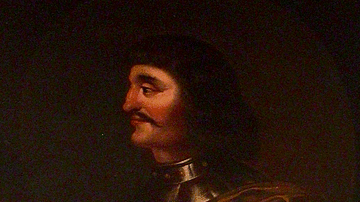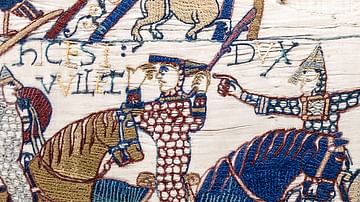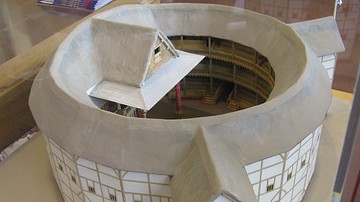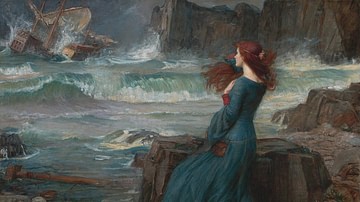Search
Search Results

Definition
William the Silent
William the Silent (l. 1533-1584, also known as William of Orange) was the leader of the Dutch Revolt (the Eighty Years' War) in the Netherlands; first politically (between 1559-1568) then militarily (between 1568-1584). He is among the most...

Definition
William II of England
William II of England, sometimes called William 'Rufus' for his red hair and complexion, reigned as the king of England from 1087 to 1100 CE. The son of William the Conqueror (r. 1066-1087 CE), the younger William was loyal to his father...

Definition
Sir William Marshal - England's Greatest Knight
The Englishman Sir William Marshal (c. 1146-1219 CE, aka William the Marshal), Earl of Pembroke, is one of the most celebrated knights of the Middle Ages. Renowned for his fighting skills, he remained undefeated in tournaments, spared the...

Definition
As You Like It - Learning to Love in Shakespeare's Forest of Arden
As You Like It is a pastoral comedy by William Shakespeare (1564-1616), written in 1599 and likely first performed that same year. Indeed, it is thought to be the inaugural show performed by Shakespeare's acting company, the Lord Chamberlain's...

Definition
William I of Scotland
William I of Scotland, also known as 'William the Lion' after his heraldic emblem, reigned from 1165 to 1214 CE. Succeeding his elder brother Malcolm IV of Scotland (r. 1153-1165 CE), William was faced with a shrinking kingdom, but he harboured...

Definition
Ben Jonson - The Second Greatest Playwright of Jacobean Theatre
Ben Jonson (1572-1637) was an English poet, playwright, and literary critic, whose influence on English Renaissance literature during the Jacobean Era (1603-1625) has been regarded as second only to that of William Shakespeare (1564-1616...

Article
William the Conqueror's Harrying of the North
By the end of 1066 CE William the Conqueror had won a decisive victory at the Battle of Hastings, subdued the south-east of England and been crowned King William I in Westminster Abbey but there remained rebellion in the air throughout 1067...

Definition
Elizabethan Theatre
Elizabethan theatre, sometimes called English Renaissance theatre, refers to that style of performance plays which blossomed during the reign of Elizabeth I of England (r. 1558-1603) and which continued under her Stuart successors. Elizabethan...

Article
4 Lesser-Known Elizabethan Playwrights and Poets
The Elizabethan era is often regarded as a golden age for English culture, language, and literature. Though William Shakespeare, Christopher Marlowe, Ben Jonson, and Edmund Spenser are amongst the best remembered writers of this era, many...

Definition
The Tempest - Shakespeare's Magical Tragicomedy
The Tempest is a play by William Shakespeare (c. 1564-1616), written in 1610 or 1611, and first performed for the court of James I of England (r. 1603-1625) on 2 November 1611. Believed to be the last play that Shakespeare wrote on his own...